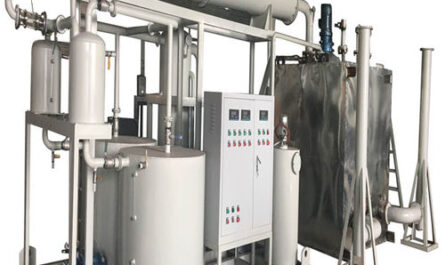Biomass solid fuel refers to fuel derived from organic matter such as wood pellets, firewood, wood chips, wood residues, agricultural residues and others. It is a carbon-neutral and renewable alternative to fossil fuels and offers cost-effective source of energy for heating residential and commercial buildings. They serve as clean source of energy that generates minimal pollution compared to traditional fossil fuels.
The Global Biomass Solid Fuel Market is estimated to be valued at US$ 3.14 Bn in 2024 and is expected to exhibit a CAGR of 8.5% over the forecast period 2024 to 2031.
Key Takeaways
The key opportunities in the market include increasing R&D efforts for developing advanced technologies to enhance the efficiency and large-scale production of Biomass Solid Fuel Market Size. The governments across various countries are providing subsidies and incentives on biomass solid fuels to encourage development and usage of renewable energy.
Key players operating in the Biomass Solid Fuel are Sanofi, Pfizer, GlaxoSmithKline, Merck, AstraZeneca, Johnson & Johnson, F. Hoffmann-La Roche, Novartis, Cipla, Gilead Sciences. The key players are focused on expanding their production capacities and global footprint to cater to the growing demand.
Globally, the Asia Pacific region dominates the biomass solid fuel market owing to large agricultural and forest areas that allow abundant availability of raw materials. The European countries such as Germany, UK, France are also major consumers of biomass solid fuels due to stringent environmental regulations and focus on reducing carbon footprint.
Market drivers
The major driver for Biomass Solid Fuel Market Size is the increasing government support for renewable energy sources. Many governments are offering various incentives and subsidies for biomass energy projects in order to reduce dependence on fossil fuels and curb GHG emissions. They have formulated supportive policies and action plans to encourage wider adoption of biomass solid fuels for heating and power generation applications. This is positively impacting the market growth. Another key driver is lower installation and maintenance cost of biomass solid fuels boilers compared to fossil fuel boilers.
PEST ANALYSIS
Political: Biomass solid fuel market is influenced by government policies and regulations related to environmental protection and use of renewable fuel sources. Supportive policies encourage biomass production and usage.
Economic: Factors such as power generation cost, biomass feedstock availability and price fluctuations impact the economic viability of biomass solid fuel. Subsidies and tax benefits boost market growth.
Social: Rising environmental awareness drives the demand for clean energy. Population growth and increasing energy needs present market opportunities.
Technological: Advanced biomass conversion technologies improve efficiency. Automation and digitalization enhance production processes.
Geographical Market Concentration
The biomass solid fuel market is concentrated in regions with abundant biomass resources and supportive environmental policies. Europe accounts for over 30% share due to extensive use of wood pellets for residential heating. North America has a sizeable market backed by pellet production in the US and Canada.
Fastest Growing Region
Asia Pacific exhibits strongest growth momentum on account of rising energy needs of populous nations like China and India. Government initiatives to substitute coal with biomass fuels drive the regional market. Increasing industrial and residential consumption of wood pellets and wood chips support market expansion in the Asia Pacific region.
*Note:
1. Source: Coherent Market Insights, Public sources, Desk research
2. We have leveraged AI tools to mine information and compile it



